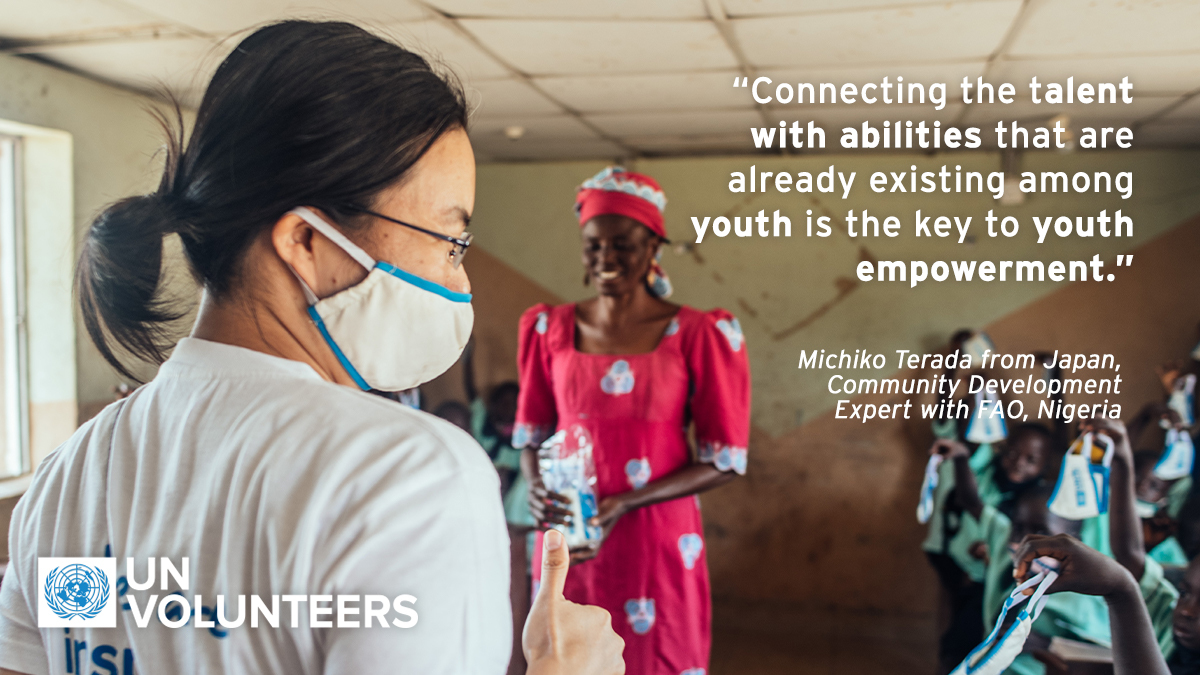Volunteerism: Our ‘Legacy’ to the Next Generation

The 2030 Agenda for Sustainable Development, recognises that volunteerism is a powerful tool to achieve the 17 Sustainable Development Goals (SDGs). With 2030 fast approaching, we need all hands on deck and make use of all available resources to reach our set targets . With an estimated more than a billion volunteers around the world, volunteerism is a key resource that can be better harnessed, nurtured, and passed on to the next generation.
Valuing the role of volunteers
The United Nations Volunteers (UNV) programme defines volunteerism as an expression of people's willingness and capacity to freely help others and improve their society. While the ‘origin’ of volunteerism remains debatable, there is common understanding that volunteering has always been part of the social fabric. Volunteering actions have helped to link communities across common strategies and to deal with complex problems. For example, some of the underpinnings of the “ubuntu” philosophy speak to voluntary collective action for the common good.
From the onset of the pandemic and lockdowns, there has been an unexpected spike in volunteering activities around the globe. Volunteers from all age groups and backgrounds have chipped in to help their near and distant neighbours during the pandemic to access food through food banks, supported frontline healthcare workers with accommodation and providing shelter for survivors of domestic violence. Volunteers have also joined hands with governments, the private sector and civil society to scale up grassroots efforts to mitigate the effects of the pandemic, and to ensure the inclusion of the unheard and of the most vulnerable.
The UN General Assembly proclaimed ‘International Volunteer Day (IVD)’ in 1985, which is observed every 5th of December. IVD offers an opportunity to promote and celebrate volunteering actions and contributions to the achievement of the Sustainable Development Goals (SDGs) at local, regional, national and international levels. Volunteers were at the centre of the Millennium Development Goals (MDGs) and continue to have an important role to play for the 2030 agenda[AS1] . That said, it is estimated that 70% of the total volunteers globally do so informally. How can the scale and scope of volunteering resources be amplified to achieve the SDGs by 2030?

Collaborating for the SDGs
The UN Volunteer system, administered by the UNDP, acts as a platform to promote and integrate volunteerism across the UN entities. The UN Volunteers (UNVs) are motivated and qualified individuals who work in UN agencies, funds and programmes at the national or international level. In 2020, more than 9,000 UN Volunteers were deployed across the UNDP programmes, to respond to the COVID-19 pandemic.
Given the importance of UNVs contributions, UNDP Mauritius and Seychelles has recruited UNVs to assist the Accelerator Lab to map community-led innovations into a database, the GRID. The UNVs will support community engagement through participatory dialogues and consultation to curate data and information on community coping mechanisms; document examples of resilience; and, map community-driven solutions to development challenges. Over a 6 months period, the Community UNVs will conduct a massive data collection exercise across Mauritius, Rodrigues and the Seychelles to aggregated our knowledge and understanding of sustainable grassroots solutions to development challenges ranging from the socio-economic disruptions of the COVID-19 pandemic to the environmental impacts of climate change.
Looking Ahead
Working together as a collective and tapping into the intelligence of the community to address development challenges is the good way to explore sustainable and inclusive solutions.
If you are a volunteer and would like to help us engage with the community and escalate grassroots and sustainable solutions, reach out to us by mail at acclab.mu.sey@undp.org.
Follow us as we share the insights of our journey with the UN Community Volunteers. Our next blog: UN Community Volunteer – Onboarding Experience

 Locations
Locations